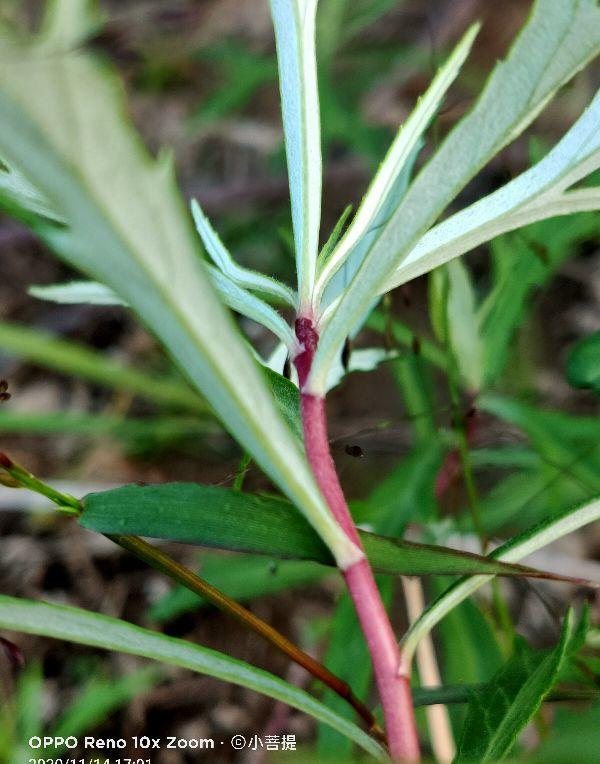For "Artemisia annua is full of short reed buds, it is the time when the puffer fish wants to go up", this verse from the Song Dynasty Su Shi's "Hui Chongchun River Evening Scenery Two Songs" should be familiar to most people.

The poem says that asparagus has grown in the early spring of tender shoots, and artemisia has grown all over the ground.
Obviously, Artemisia annua should belong to a plant that is not afraid of cold.
These pictures were taken just before the festival of light snow, which can prove that Artemisia annua is really not afraid of cold relatively much.
Artemisia annua is a perennial herb of the Asteraceae family, Artemisia annua, and the whole plant has a fragrant smell.
At heights of up to 1.5 meters, they also have stems that crawl underground.
The stems with distinct longitudinal edges are greenish-brown at first and gradually turn purple-red.
The lower part of the stem is usually semi-woody, and the upper part of the stem has branches of a head-like inflorescence.
Its leaves are papery or thin papery, green on the front, glabrous or nearly glabrous, and densely covered with gray-white spider silky flat wool on the back.
It usually blooms and bears fruit from July to October, but due to the wide distribution of Artemisia annua and the general warming of the climate, the flowering and fruiting period of Artemisia annua may change in some places.
Because artemisia annua contains tephrones, it has a unique aroma and is used in some places as one of the traditional seasonal must-eat wild vegetables.
People usually feed on the young stems and leaves above ground and the fleshy creeping stems underground.
Related traditional Chinese medicine records that Artemisia annua is warm and bitter, and has the effect of diaphragmatic appetizer.
Artemisia annua usually grows on low-altitude river banks, wet wastelands, hillsides, roadsides, and sparse forests, and can occasionally be seen standing in the water.
Therefore, it is also called water wormwood, and even some places use artemisia instead of wormwood during the Dragon Boat Festival.
In many places, folk people take the whole herb of Artemisia annua for hemostasis, anti-inflammatory, antitussive, phlegm, and even directly pick young stems and leaves for fresh vegetables or pickled vegetables.